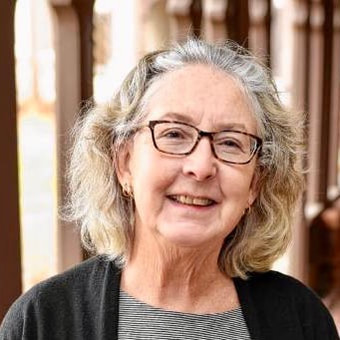The land, as it turned out, was first part of God’ covenant with Abraham and Sarah.
During the summer months in this first of the three-year lectionary cycle, the Matthew year, we follow the longest sequence that appears at any point in the lectionary – over the course of several months we follow the sweeping story of the tribal ancestors of Israel -
I LOVE THIS MATERIAL. Not only is it wonderful storytelling, with all the characteristics of great literature; it is important because it is the foundation of Jesus’s faith, and therefore ours as well. Genesis and the rest of the ancestral stories convey Israel’s knowledge of a loving God who creates the world, who is passionately engaged with and faithful to God’s people, who is continually seeking to redeem the world through drawing God’s people into relationship with God’s self. Although I know this will be review, I wanted to spend some time this morning setting the context for this material, since we will be hearing and living with it for the next several months. The Ancestral Narratives are mythological in nature.
According to sacred text we share with Jews and Muslims, Abraham and Sarah were the first to know God as we know God and to enter into covenant relationship with God –
Today’s look into the story picks up with a promise, a laugh, and a rebuke. Let’s look back at what came before - The covenant God established with Abraham involved three promises, revealed over the course of several encounters:
Abraham and Sarah are imperfect people, as are all of the Bible’s human protagonists, and the plot thickens as Abraham and Sarah age without the awaited offspring. Sarah, unable to trust God’s promise, has hatched an alternative plan, and sent her servant, Hagar, to lie with Abraham and bear a son. But as anyone might have predicted, Ishmael’s birth introduces new strains into household and the sense of threat and drama grows. Which is where we pick up with today’s episode. Resting by the oaks of Mamre, Abraham spies three visitors approaching, and somehow seems to know that these are no ordinary strangers. Abraham outdoes himself in providing hospitality: he runs to greet them, hastens to tell Sarah to prepare a meal, and then runs to the herd to pick out the perfect calf. All of this on 100-year old legs! As the visitors are eating, they ask after Sarah who, we learn, is eavesdropping behind the tent flap, and they renew the promise that she will have a son “in due season”. The storyteller reminds us that Sarah is old – we already know that she is 90 - and has passed her menopause. Listening to the visitors’ promise, Sarah laughs to herself: “After I have grown old, shall I have pleasure?” The Lord (who, it turns out, is present in the guise of the strangers,) chastises Sarah for her laughter, speaking the line that is clearly the important point of the story: “Is anything too wonderful for the Lord?” Throughout the ancestral narratives the storytellers illustrate the faithfulness and the power of Jahweh, the one who comes through and fulfills promises, the one who overcomes all of the obstacles that the faithless human community creates. God’s faithfulness is a truth we still need to hear, for it is still true. Today, I think, though, we recognize that that it is our opportunity and our responsibility to work on the healing of the world, and that it is through us that God acts. Having affirmed this important and central truth, I also want to acknowledge some of the difficulties in this story.
Juneteenth celebrates freedom from enslavement, recognizing the occasion when the final enslaved Americans were notified, as Major General Gordon Granger arrived in Galveston, Texas in June 1865, that the Emancipation Proclamation of 1863 had liberated all persons in the United States from bondage under the system of chattel slavery. So there it is: Who matters? Who is treated with respect, is worthy of being provided the basic information that affects their lives? Just as the ancient storytellers did not regard it as important to allow Sarah a direct part in the conversation about her own childbearing, historians suggest that some slaveholders may well have withheld information about their freedom from their enslaved agricultural workers, in order to continue to benefit from their labors.1 Let us do better in our own time. *** Today’s story of Abraham’s visitors and Sarah’s laughter reminds us that despite the many troubles of this broken world, ours is a faithful God, one we can trust. It reminds us that God’s answers for us often don’t take the shape we would choose or emerge in the time frame that we have in mind. Is anything too wonderful for God? Let us be the bearers of hope and the workers of justice. 1 “What is the history of Juneteenth?”, brittanica.com Comments are closed.
|
We are blessed to have a diversity of preaching voices in our parish. Our guild of preachers is a mixture of lay and clergy. We hope you enjoy the varied voices. Meet our Preachers
All
Archives
July 2024
|
